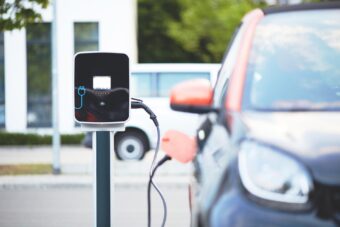
Electric vehicle battery material lithium should not be classified as a hazardous substance by the European Union because the scientific evidence on which the proposal is based is weak, seven industry groups said.
Lithium was added to the EU’s list of critical raw materials in 2020 because it is important for electric vehicles which are key to meeting targets for cutting carbon emissions.
The proposal by the European Chemicals Agency (ECHA), which cited studies based on lithium containing medicines used over the long term as a treatment for mood disorders, wants to classify lithium salts as dangerous for human health.
“The analysis finds only a quite weak association” between lithium exposure and developmental effects, said Violaine Verougstraete, chemicals management director at Eurometaux, which represents the metal industry.
“For fertility, the opinion is based on selected studies with serious limitations, contradicted by more robust guideline studies which showed no effect of lithium exposure.”
More:
EU member states are currently giving their views on the proposal to a committee which meets on July 5-6 to discuss chemicals including lithium that have been recommended for classification as dangerous.
A final decision is expected at the end of 2022 or beginning of 2023.
Classifying lithium as dangerous would have a major impact on Europe’s energy transition goals, the industry groups including Eurometaux and Recharge, the European industry association for rechargeable lithium batteries, said in a letter to the EU.
“Europe is at a critical period in its energy transition, needing to stimulate new investment into a full electric vehicle battery value chain,” the groups said.
“Europe is playing catch-up with China, which is already over a decade ahead, now controlling most global processing for lithium and other battery metals … Europe has a narrowing window of opportunity to attract the investments needed, and lithium is a central material to our success.”
Classifying lithium as hazardous will hamper investment in European refining and recycling capacity and give an advantage to companies in the electric vehicle battery supply chain outside the European Union, the letter said.
The proposal doesn’t ban lithium imports, but if legislated it will add to costs for processing companies from more stringent rules controlling processing, packaging and storage.
Source: EURACTIV





